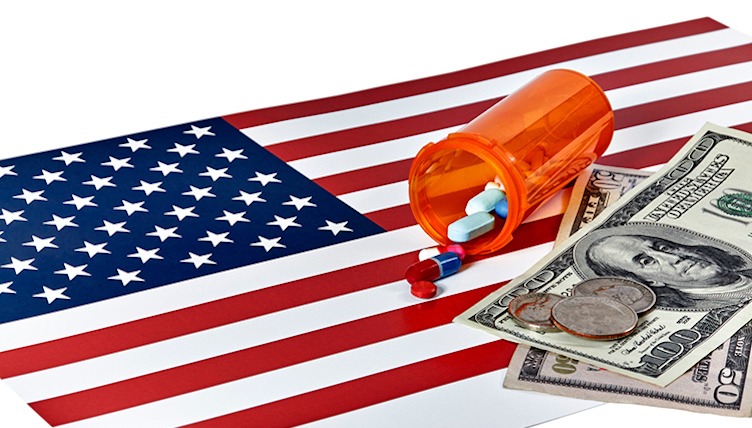US and Pharma Trade: Where Does It Stand?
The US is the largest pharmaceutical market in the world, but where does it stand in trade? A new report by the Office of the United States Trade Representative highlights concerns regarding intellectual property protection and enforcement and market-access barriers affecting US pharmaceutical exports.
The report points to needed reforms among US trade partners, including China, India, Japan, Canada, and Korea. DCAT Value Chain Insights takes an inside look.
US pharmaceutical industry and trade
The US Trade Representative (USTR) Robert Lighthizer issued in April 2018 the USTR’s annual Special 301 Report, an annual review of the state of intellectual property (IP) protection and enforcement in US trading partners around the world. The report identifies foreign countries that fail to provide adequate and effective IP protection and enforcement for US inventors, creators, brands, manufacturers, and service providers and identifies the steps need to address IP-related market access barriers. The Pharmaceutical Research and Manufacturers of America (PhRMA), which represents the large innovator, research-based pharmaceutical companies, said it “welcomed” the 2018 Special 301 Report, which includes a new section devoted to pharmaceutical market access barriers.
”America leads the world in the research and development of new medicines, but some foreign countries stack the deck against our companies,” said Stephen J. Ubl, President and CEO of PhRMA, in an April 27, 2018 statement. “Discriminatory pricing and reimbursement policies in Canada, Korea and Japan put our jobs and exports at risk. The US government should continue using all available tools, including ongoing NAFTA [North American Free Trade Agreement] negotiations, to level the playing field for American innovators. A fair and competitive marketplace will drive down costs for US. patients.”
PhRMA’s Special 301 submission asked USTR to name Korea, Canada, and Malaysia Priority Foreign Countries, a designation reserved for economies with the most serious IP or market-access practices that have the greatest impact on US products. Earlier this year, USTR secured a commitment under the US–Korea Free Trade Agreement (KORUS) that Korea will end some discriminatory pricing and reimbursement policies. PhRMA noted that the USTR downgraded Canada from the Watch List to the Priority Watch List and committed to an Out-of-Cycle review of Malaysia’s IP system. The Out-of-Cycle Review is a tool that USTR uses to encourage progress on IP issues of concern. The USTR report also places a priority on solving ongoing issues in India, Indonesia, Chile and other countries, and to address emerging issues in Colombia and Saudi Arabia, according to PhRMA.
The 2018 Special 301 Report highlights concerns regarding IP protection and enforcement and market-access barriers affecting US entities that rely on IP protection, including those in the pharmaceutical and medical device industries. USTR says it has sought to ensure robust IP systems and reduce market-access barriers to pharmaceutical products and medical devices,” so that trading partners contribute their fair share to the research and development of new cures and therapies.”
This includes addressing “measures that discriminate against US companies, that are not adequately transparent, or do not offer sufficient opportunity for meaningful stakeholder engagement, as well as pressing trading partners to appropriately recognize the value of innovative medicines,” according to the USTR report. The report also highlights concerns regarding unfair uses of compulsory licenses.
Action by the USTR in pharmaceutical trade
The report highlights several actions being taken by the USTR to address those concerns. It said it is seeking strong IP provisions, which are important to incentivizing innovation, in the renegotiation and modernization of NAFTA with Canada and Mexico. USTR is also seeking provisions to ensure that federal government regulatory reimbursement regimes are transparent, provide procedural fairness, are nondiscriminatory, and provide full market access for US products.
The USTR also points to its efforts to obtain the new US-Korea Free Trade Agreement (KORUS FTA) to ensure that Korea better implements its KORUS FTA obligations to provide fair and non-discriminatory treatment of pharmaceutical products.This includes imported products, under certain medical pricing and reimbursement programs.
The USTR said it is engaging with Japan in the context of the US–Japan Economic Dialogue to ensure transparency and fairness and address other concerns with respect to pharmaceutical pricing and reimbursement policies.
It said that it is also “pressing” China on a range of issues affecting the pharmaceutical sector, including providing for effective protection against unfair commercial use, as well as unauthorized disclosure, of test or other data generated to obtain marketing approval for pharmaceutical products. USTR said it is also pressing China to expedite its implementation of an effective mechanism for the early resolution of potential patent disputes.
With respect to India, the USTR says it is engaging with India to secure meaningful IP reforms on longstanding issues, including patentability criteria, criteria for compulsory licensing, protection against unfair commercial use, and unauthorized disclosure of test or other data generated to obtain marketing approval for pharmaceutical products.
The USTR highlighted its progress with other countries. It said it is “pressing” Indonesia to resolve concerns regarding revisions to Indonesia’s patent law, such as its patentability criteria, local manufacturing and use requirements, and the grounds and procedures for issuing compulsory licenses. It said it is also raising concerns with Argentina regarding the scope of patentable subject matter and effective protection against unfair commercial use, as well as unauthorized disclosure, of undisclosed test or other data generated to obtain marketing approval for pharmaceutical and agricultural chemical products, among other issues.
In the Middle East, it says it is engaging with Saudi Arabia regarding the protection and enforcement of patents and effective protection against unfair commercial use, as well as unauthorized disclosure, of undisclosed test or other data generated to obtain marketing approval for pharmaceutical products, among other issues. It is also seeking confirmation that the United Arab Emirates will continue to protect pharmaceuticals through local procedures and the Gulf Cooperation Council (GCC) patent system.






